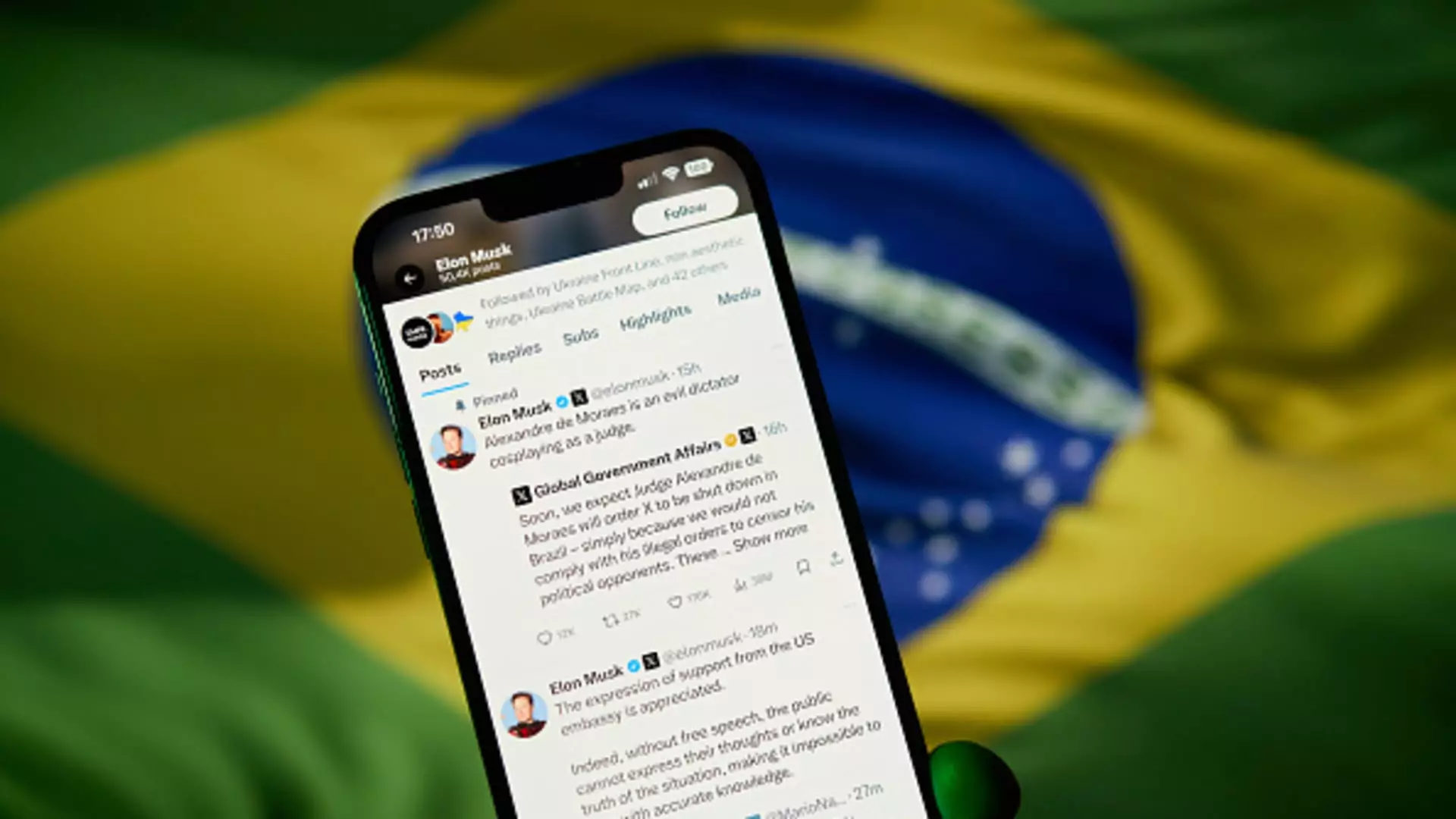In a surprising turn of events, Brazil’s federal supreme court justices voted unanimously to uphold orders suspending the use of Elon Musk’s social network X nationwide. This decision was made in response to X’s defiance of court requests to take down accounts or posts that were deemed to violate Brazil’s laws on political misinformation and hate speech online. The controversy escalated when the court issued suspension orders and froze the financial assets of another Musk-led business, satellite internet service Starlink, to ensure compliance with the fines imposed.
One of the key aspects of the court’s decision that sparked debate was the measure that allowed the court to fine individuals or businesses that engaged in “subterfuge,” such as using VPNs, to access X while it was blocked. Justice Luiz Fux expressed reservations about this particular aspect of the order, highlighting concerns about the potential implications of such fines on internet freedom and privacy rights. The court’s actions have raised questions about due process and the limits of government intervention in regulating online platforms.
Elon Musk’s Response and Rhetoric
Elon Musk and his companies have vehemently opposed the court’s orders, labeling them as “illegal” and issuing statements calling for the impeachment of top justice Alexandre de Moraes. Musk’s escalating rhetoric, including calls to end foreign aid to Brazil and threats of reciprocal confiscation of assets, has added fuel to the fire. His accusations of government overreach and lack of due process have further polarized public opinion on the issue.
The suspension of X in Brazil has left many users divided and confused, with some struggling to navigate alternative social media platforms in its absence. While some users have shifted to other networks like Bluesky, others remain loyal to X and are advocating for its reinstatement in the country. The situation has highlighted the challenges inherent in regulating online content and the complex relationship between tech companies, governments, and user freedoms.
As the controversy surrounding X in Brazil continues to unfold, it raises critical questions about the role of tech companies in shaping public discourse, the limits of government intervention in online platforms, and the balance between free speech and responsible content moderation. The outcome of this dispute will have far-reaching implications for the future of internet regulation and the global tech industry. It is crucial for all stakeholders, including Musk, the Brazilian government, and social media users, to engage in meaningful dialogue and find sustainable solutions that uphold both legal standards and democratic values.



Leave a Reply